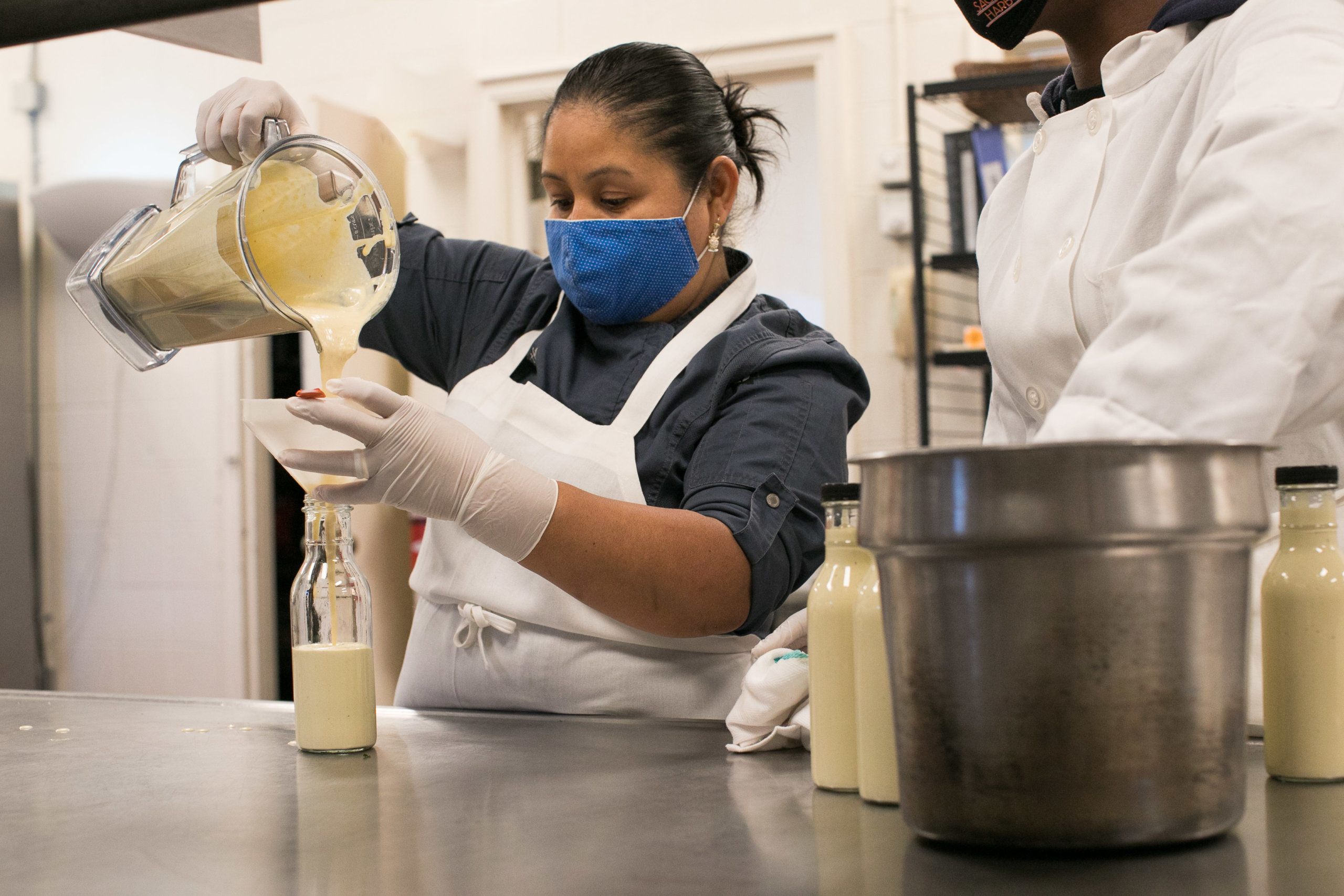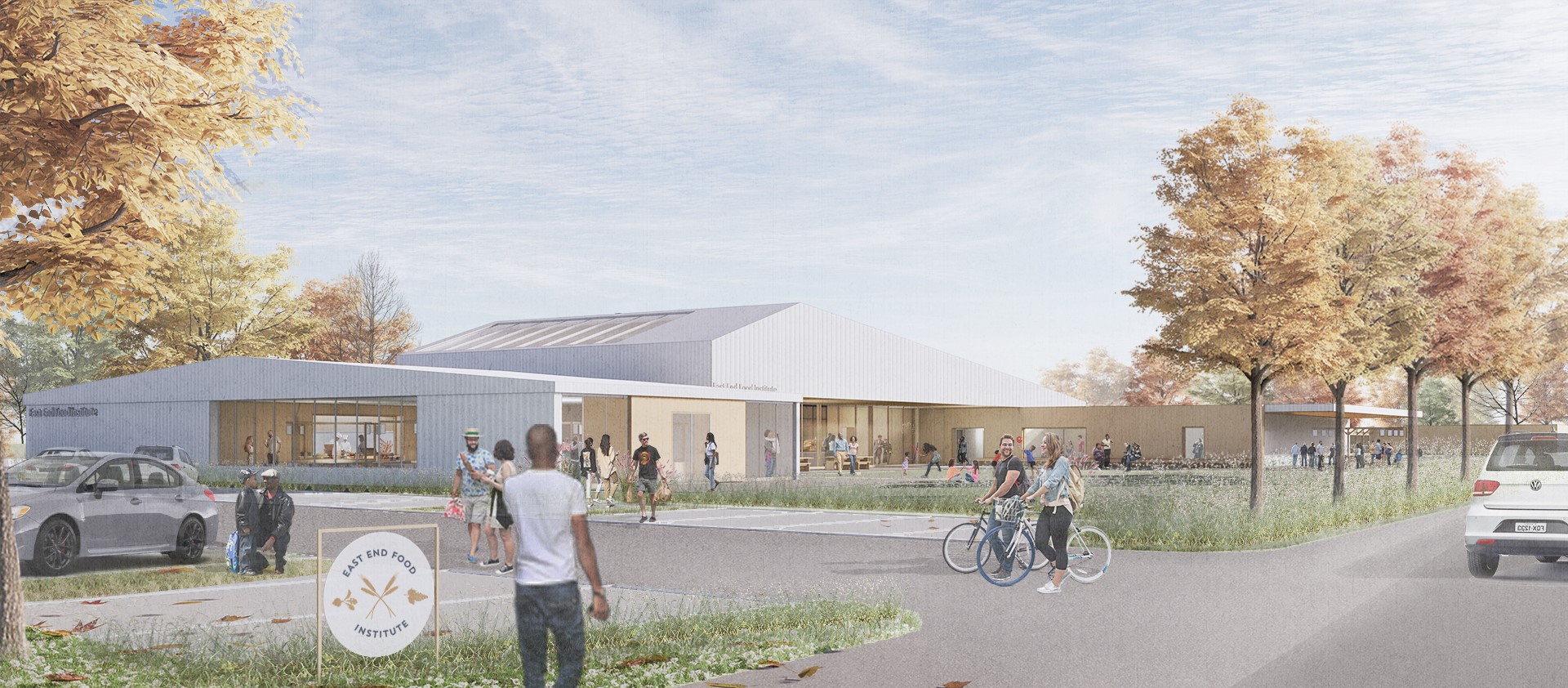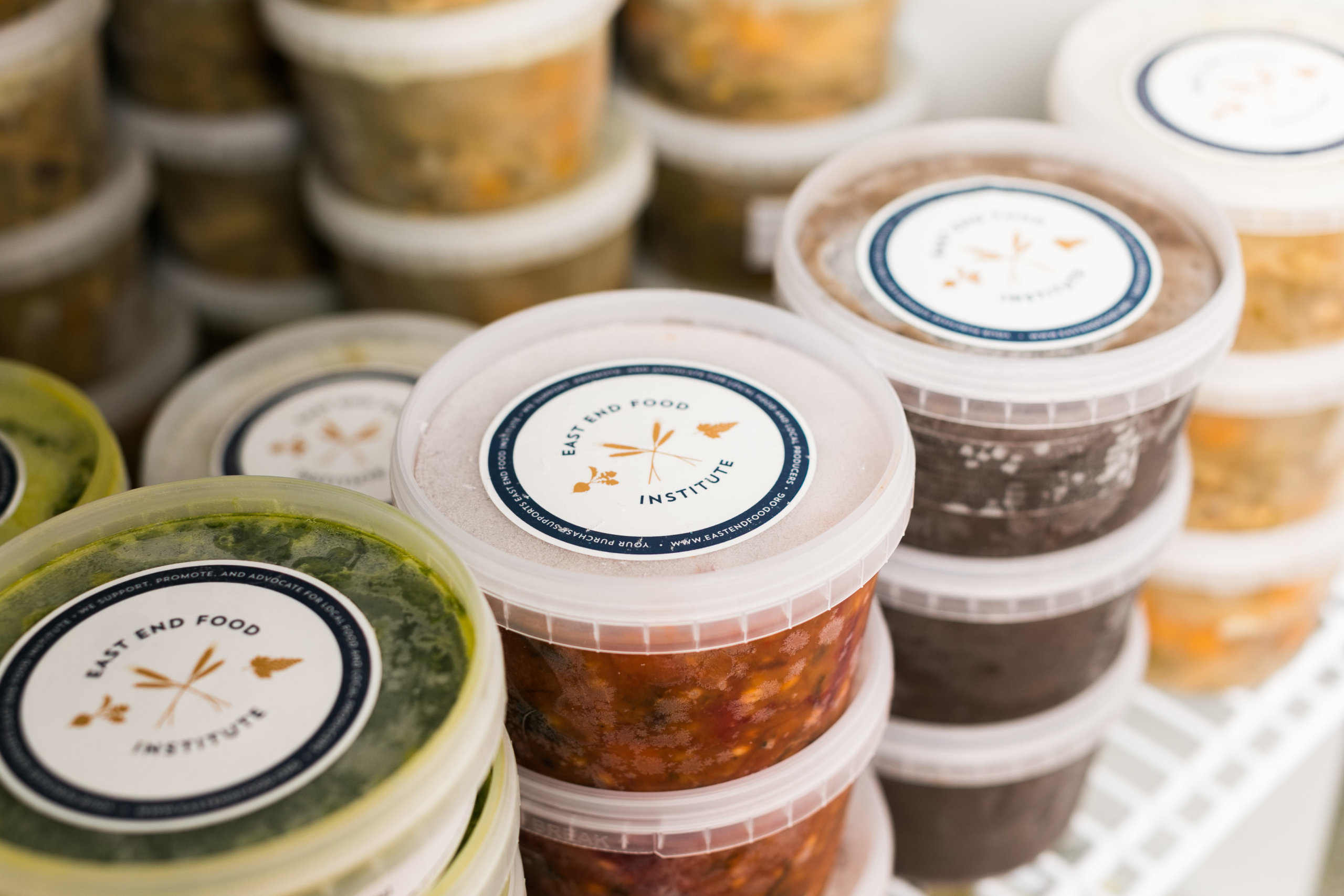East End Food Institute Planning a Food Hub for Riverhead

The East End Food Institute (EEFI) wants to build a multi-faceted food hub in Riverhead.
The nonprofit organization’s plans call for the renovation of an existing building at 139 Main Road in Riverhead and construction of two additional buildings on the four-acre property. The goals of the East End Food Hub include centralizing processing and distribution of local produce and products and helping farmers and food producers market their products to more consumers, schools, institutions and food pantries.
The organization was originally founded in 2010 as the Amagansett Food Institute by a group of food lovers who wanted to promote, support and advocate for local farmers and food producers. Currently headquartered on Stony Brook University’s Southampton campus, EEFI is led by Executive Director Kate Fullam, who came aboard in 2018 and steers a team of five to seven full-time-equivalent employees (the number fluctuates seasonally) to help farmers make products out of surplus produce.

“We help farmers turn tomatoes into tomato sauce, for instance, and help them have more of a year-round business while improving access to local food for more people,” Fullam says. The institute’s facilities include a commercial kitchen, where licensed businesses can produce their own products or have it produced for them by EEFI staff, who have developed recipes that can be applied to local fruits, vegetables and herbs. The institute also offers a wide range of services to help food companies market their products, including a virtual farmers market and farm-to-school and farm-to-community partnerships.
Last year, EEFI expanded to Riverhead, signing a three-year lease at 139 Main Road to house the East End Food Market, a year-round indoor farmers market. The 5,000-square-foot building, which was previously the home of Homeside Florist & Greenhouses for 64 years, currently has an open floor plan with space for 45 vendors, who bring in their own tables, signs and wares for the market, which runs on Fridays from May through October and Saturdays from November through April.
The institute plans to file plans for Phase I of its project before the end of this year and hopes to renovate the existing Riverhead building and relocate its headquarters to the space in 2023. About 2,000 square feet of the building would be dedicated to a community kitchen. The remaining 3,000 square feet would accommodate the farmers market, with renovations to include the addition of 16 semi-permanent stalls, which vendors could rent year-round to use for selling, storage and light food preparation, while having access to the commercial kitchen on premises.
Phase 2 calls for the construction of a second, 7,500-square-foot building, which would allow for expansion of the farmers market, enhanced food processing facilities and an educational and gathering space, where events like cooking classes and food conferences could take place.
Additional plans call for another 5,000-square-foot building for farm-to-freezer operations, including cold storage and warehouse space for aggregation and distribution of product, and accommodations for food system workers, such as interns and trainees, and food event attendees.
“We have a good partnership with the landlord, Paul Pawlowski, who has done terrific work in Riverhead,” Fullam says.
Pawlowski, a Mattituck-based developer, purchased the 139 Main Road property with business partner Kenneth Ballato in 2020. Other projects for Pawlowski include the recent development of a three-story medical office building on the former site of Howard Johnson’s and the Riverboat Diner, which had been vacant for 15 years.

EEFI has more than 150 members, including farmers and food businesses. Some of the more active North Fork members include Treiber Farms in Peconic, which markets pickles, sauces and preserves, and Latham Farms in Orient, whose products include pickles and strawberry preserves.
Other members include Aki’s Kitchen, which makes soups and other products in EEFI’s kitchen. The institute also partners with Sag Harbor Honey to make its Hot Honey product, as well as Springs Fireplace, which makes hot sauces from peppers that it grows, and Sweet Woodland Farm, which grows herbs and flowers and produces herbal teas.
Balsam Farms and Amber Waves are among the larger South Fork farms that work with EEFI to produce custom products.
“A lot of the local products you see on the market come from our kitchen,” Fullam says.
Learn more at eastendfood.org.



